Rising water pollution issues at Cardiff Bay have forced summer attraction Aqua Park to relocate. How the water quality crisis is impacting local businesses?
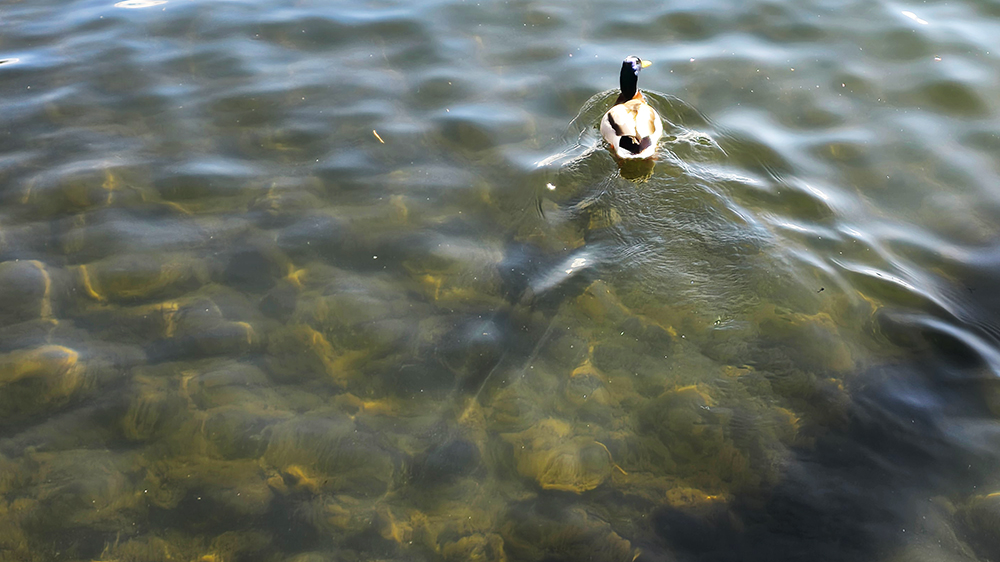
The water in Cardiff Bay is a murky shade of green, with floating plastic swaying with the tide, while further out, dark streaks ripple across the surface, a stark contrast to the lively reflections that once danced in the summer sun.
For local boat tour operators, the sight is more than just unpleasant, it’s bad for business.
“Guests often ask why the water looks so dirty, and it’s embarrassing to explain,” says one operator at Mermaid Quay, shaking his head as he glances toward the docks. “It’s starting to affect how people perceive our tours.”
The water that once invited tourists now pushes them away.
“We rely on the bay’s appeal for our business, and when the water is filled with litter, it’s not exactly the scenic experience people expect,” another said. “It’s worrying, especially as summer approaches,” said another tour guide working at Cardiff Bay boat tour.
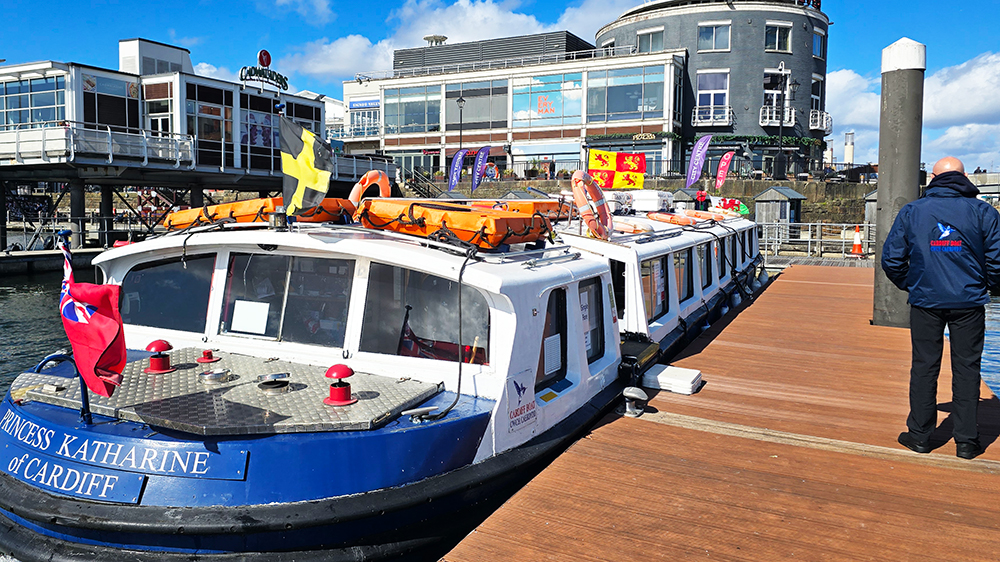
For the past few years, the floating Aqua Park was a magnet for families and adventure-seekers in Cardiff. But worsening water quality forced its relocation to Cosmeston Lake in Penarth.
Marcus Goldsworthy, Vale of Glamorgan Council’s Director of Place, explains why the decision was unavoidable in an interview with WalesOnline.
“Essentially, every time there was heavy rain, the water quality was so bad that they were unable to operate,” he says.
Since its launch in 2019, the Aqua Park battled increasing environmental challenges.
The Cardiff Harbour Authority can be seen insisting that the water is “routinely tested” and meets EU bathing water standards, but locals and business owners see a different reality.
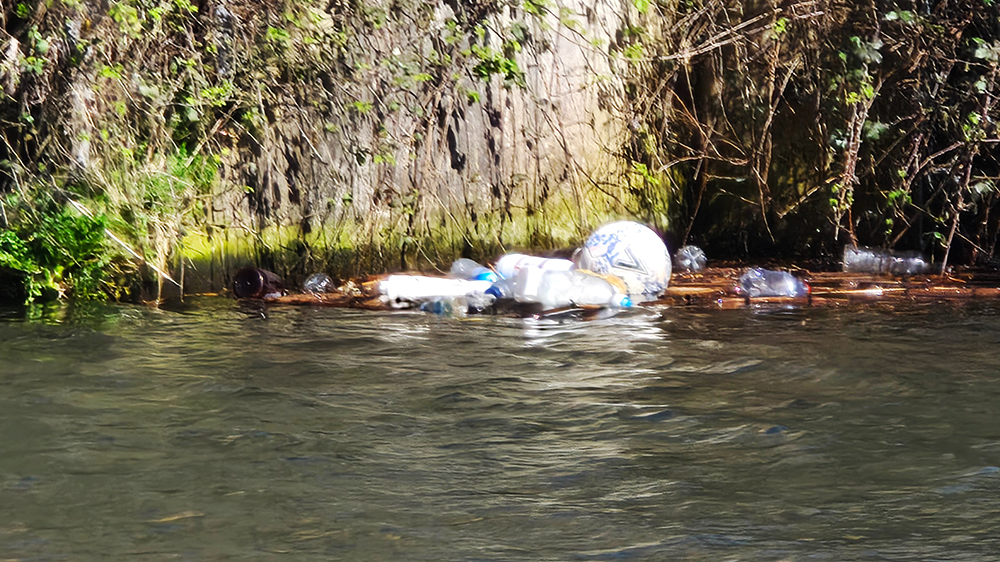
At the Cardiff Bay Barrage, where the Aqua Park originally functioned, business owners are noticing shifts, too. A café owner, while not yet in panic mode, is keeping a wary eye on sales.
“We’ve noticed a slight drop in sales, but it’s not been too dramatic so far. But if this continues into next summer, though, it might become a bigger problem.”
While the shop and business owner on the opposite side of the bay around Mermaid Quay remain calm.
“Honestly, we’re not too worried. Cardiff Bay always has other attractions. The park closure hasn’t really affected us. But the pollution issue is something we all notice. People throw litter into the water like they don’t care, and it’s frustrating to watch.”
Another restaurant owner said, “ We are lucky that Mermaid Quay draws in tourists for the restaurants and shops, but the water pollution is becoming more visible. It’s not a good look for visitors, and it makes people question the safety of the bay.”
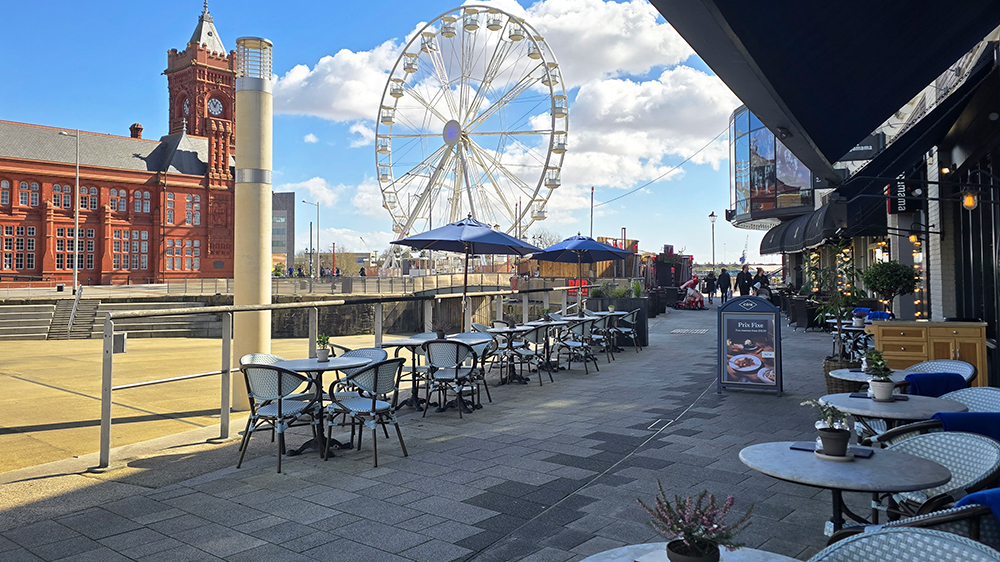
A Cardiff University study, conducted for the Wye and Usk Foundation, has shed new light on why the water quality continues to decline. Contrary to previous assumptions, the issue isn’t just about phosphate levels, there are multiple contributing factors.
Thom Bellamy, a PhD researcher involved in the study, explains what their findings reveal.
“This process of extracting the eDNA is important because it gives us an understanding of how different species are working together in the river,” he says. “Our analysis showed no single species dominance but instead a diverse composition of diatoms, green algae, and a low level of cyanobacteria.”
With rising ammonium and nitrate levels, seasonal flow changes, and increasing temperatures, the delicate balance of the bay’s ecosystem is shifting in troubling ways.
Simon Evans from the Wye and Usk Foundation highlights the complexity of the problem.
“While phosphate levels have been declining, we were still receiving reports of worsening algal blooms,” he says. “This study helps us understand the complex dynamics at play.”
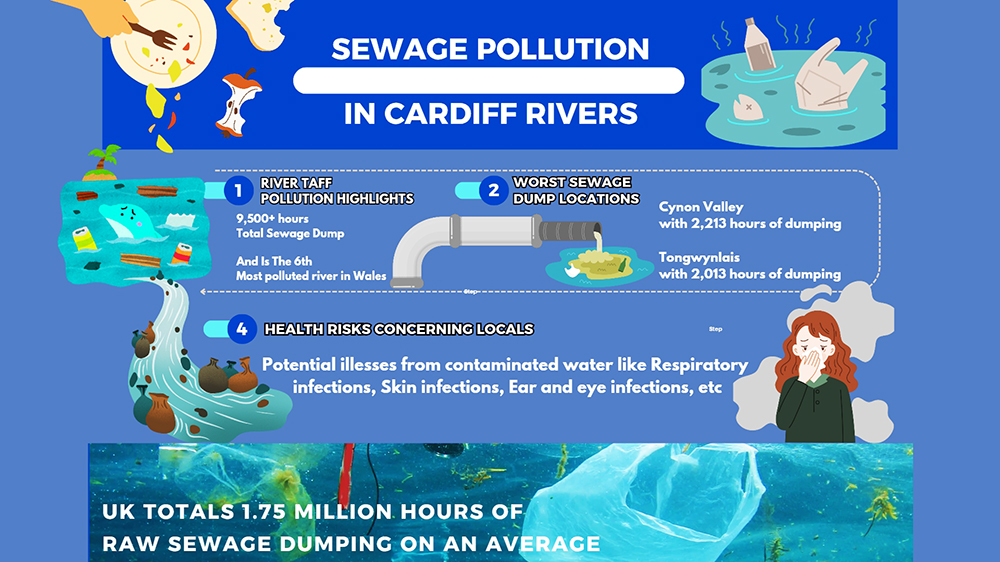
Cardiff Bay’s water crisis is not unique. A BBC investigation found thousands of potentially contaminated sites across Britain remain unchecked, with nine out of ten “high-risk” areas not tested by local councils.
University students in Cardiff are now questioning the safety of even their drinking water.
Sophie, a Cardiff University student, expresses her concerns saying, “We’re constantly told to stay hydrated, but how can we when we’re unsure about the water quality? It’s unsettling, and buying bottled water every day isn’t a sustainable option for most of us.”
Abhay, a student at Cardiff Met, says, “Even bottled water brands make me uneasy sometimes. With all the reports about microplastics and contamination, it feels like we’re forced to choose between two bad options.”
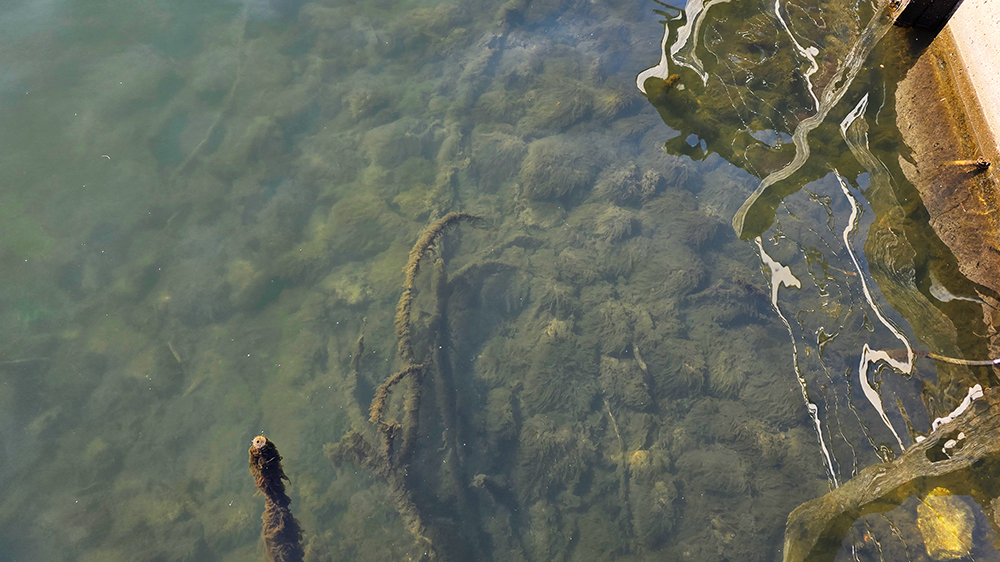
The pollution is more than just a problem for businesses, it’s changing how locals use the bay.
Sarah Jenkins, a Cardiff resident and mother of two, recalls the days when paddleboarding with her children was a weekend tradition. Now, she isn’t sure it’s safe.
“I used to take my kids to the bay for paddle boarding,” she says, her voice tinged with disappointment. “But now I worry about infections and contamination. It’s disappointing that we can’t enjoy the water like we used to.”
The story of Cardiff Bay is not just about water quality or a single park’s closure. It’s a reminder of how climate change, pollution, and economic sustainability are deeply interconnected.
As the community looks forward to summer 2025, there’s a shared understanding that meaningful change will require collective effort, scientific insight, and a commitment to protecting Cardiff’s waterways.
